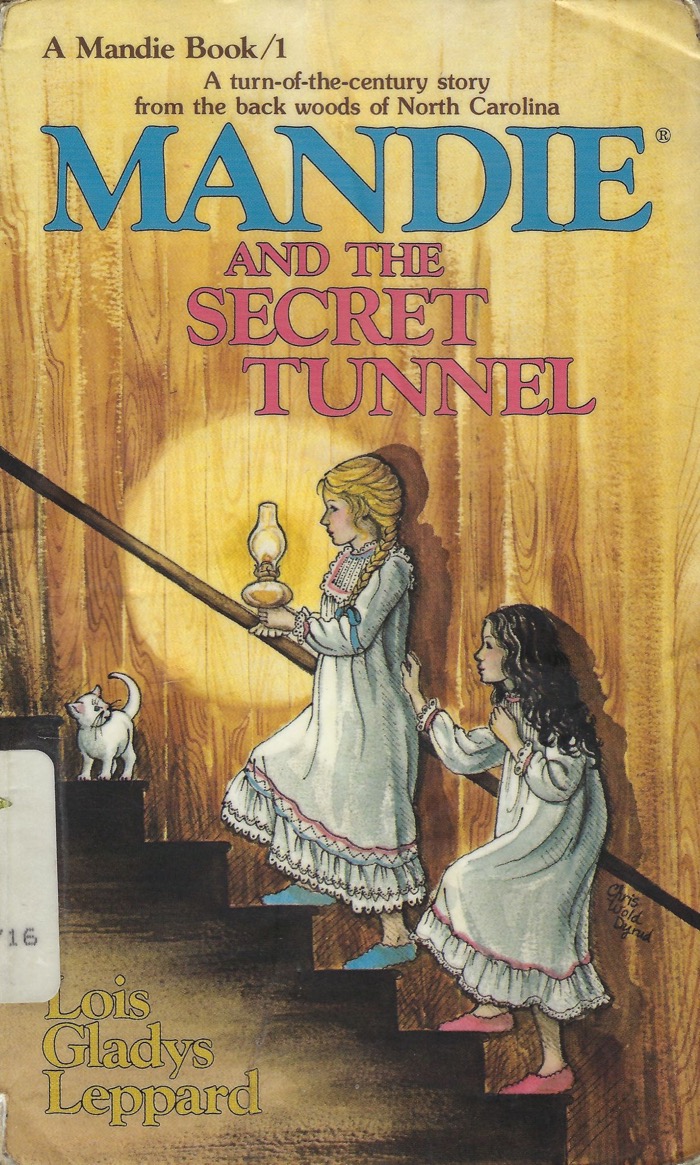Mandie and the Secret Tunnel
Reviewed date: 2010 Jun 18
141 pages
Eleven-year-old Mandie Shaw watches her father lowered into the grave. Scant weeks later, her cruel mother, Etta Shaw, sends her to work as a live-in nanny for a rich family. She suffers cruel abuses at their hands. Mandie reaches out to Uncle Ned, a Cherokee friend of her father's. Uncle Ned helps her escape and takes her to her Uncle John's house.
The problem is, Uncle John never knew Mandie. He and Mandie's father, Jim, had a falling out, and were estranged since Mandie's birth. Worse, Uncle John is away in Europe. His housekeeper, Jason Bond, puts Mandie up in a spare room. The worst blow of all comes a few days later: Uncle John has fallen ill and died in Europe.
Mandie is Uncle John's only living relative, so she stands to inherit his fortune. There are only two problems: first, Uncle John has a will, which cannot be found. The estate is in limbo until the will can be located. Second, a whole lot of "relatives" start showing up to claim the fortune.
Mandie knows the others are imposters, but she can't prove it. Again she turns to Uncle Ned, who mobilizes his Cherokee friends to do a little background check on the would-be relatives. Then she gets her new friend Polly to help her find Uncle John's will, which is supposed to be hidden somewhere in the mansion.
Mandie and the Secret Tunnel is a good book, even if the secret tunnel is a red herring all along. It doesn't figure much into the plot. And it's a Christian book. Throughout, Mandie talks to God and trusts in him--even when she's angry at him for letting her father die. The ending is a bit too cozy and saccharine for an adult's taste, but it's appropriate for a kids' book.
The book is progressive (and historically inaccurate) in its portrayal of race relations. Mandie strikes up friendships with the black servants in Uncle John's house. Despite the class difference, these friendships flourish. Unfortunately, this simply wouldn't have been permitted in real-life 1899. It works pretty well in fictional 1899, though. Only one nitpick: the black servants speak in stereotypical slang. There's no need to reinforce that kind of patronizing portrayal of black people in America. But on the whole, the portrayal is progressive and positive.
In its treatment of Native Americans, though, Mandie and the Secret Tunnel fares less well. Uncle Ned, Mandie's Cherokee friend, is a sympathetic character, and his friendship with Mandie is progressive and a positive portrayal. However, Uncle Ned also reinforces negative stereotypes: Uncle Ned speaks in broken English, using awkward "Indian-sounding" phrases. He mixes in words like papoose, happy hunting ground, and squaw. Perhaps it's accurate that Uncle Ned wouldn't speak great English--it would have been a foreign language to him--but it's makes him appear simple and ignorant.
Worse, though, is that Uncle Ned is never developed as a character. He is a magic Indian who helps Mandie out of tough spots by calling upon his mysterious Cherokee powers. Yes, he's a good guy, and portrayed positively. But he's not portrayed as a human being. And that makes the difference.
SPOILER WARNING: Uncle John staged his death to see who he could trust; he and Jim (Mandie's father) had reconciled just before Jim's death. Etta Shaw isn't Mandie's real mother at all. Her real mother is a beautiful woman named Elizabeth. Elizabeth loved Mandie's father, but her family had forced her to leave Mandie's father against her will, and they told her that Mandie had died at birth. Mandie was given to her father and sent away in secret. When Uncle John pieces everything together and realizes what has happened, he reunites Elizabeth with her daughter. So Mandie has a loving mother now. And, Uncle John and Elizabeth decide to get married, so Mandie gets to stay and live in Uncle John's mansion. It's a very happy ending.
